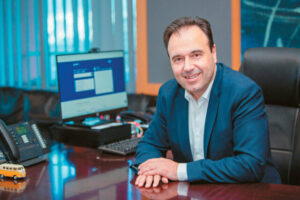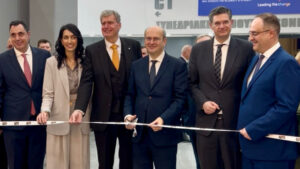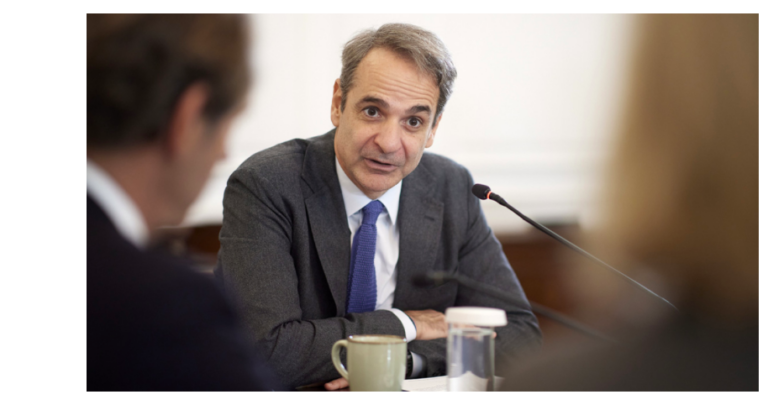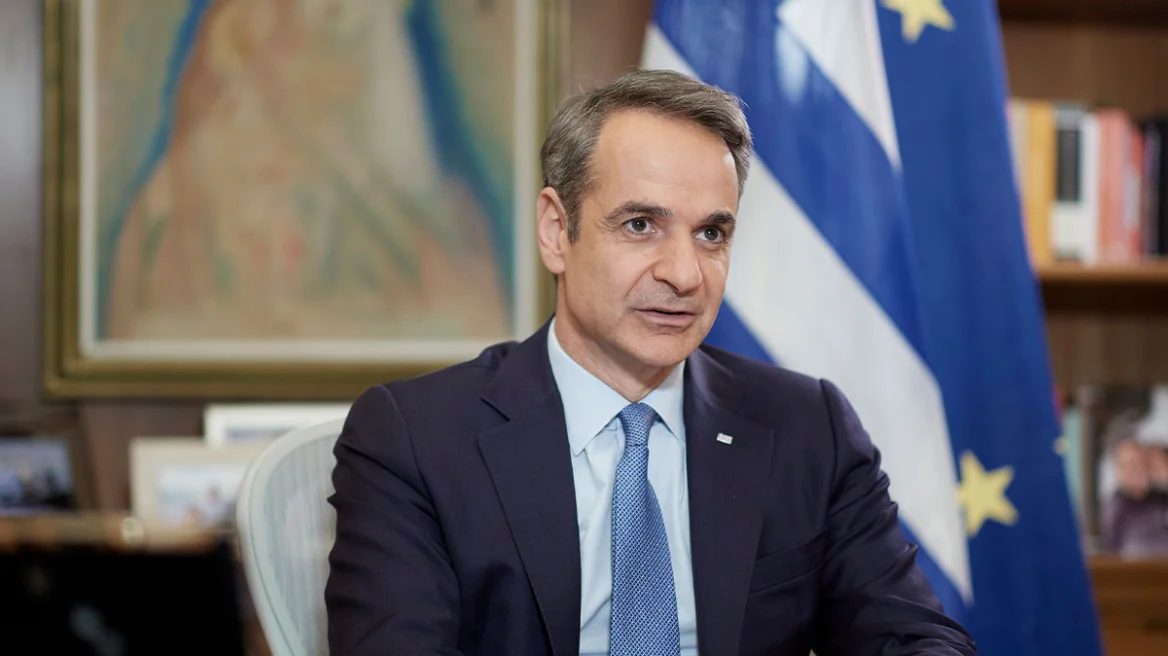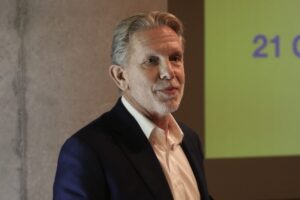The signing of the latest contract on November 14 for AXIS 3 of the National Micro-satellite Program announced the Minister of Digital Governance, Dimitris Papastergiou in an interview with APE-MPE on the occasion of the World Space Week, which this year focuses on “Space and Climate Change”. Papastergiou underlined the crucial role of the Program in monitoring and addressing climate change, as he noted that “the 15 micro-satellites will provide data every day, many times a day, which will be useful”. He pointed out that this Program will also offer other fields, such as meteorology, agricultural crops, and the economy, as the companies that have undertaken the construction of the micro-satellites will “bequeath” all this knowledge to Greece “so that we can continue later on our own.”
The following is the interview of the Minister of Digital Governance, Dimitris Papastergiou, to the Athens-Macedonian News Agency and Katia Papadopoulou:
Question: On the occasion of the World Space Week, which this year has as its main theme “Space and Climate Change”, do you believe that the “National Micro-satellite Program” will eventually be our toolbox to deal with the climate crisis and in what ways will this be done? Additionally, beyond the climate crisis, in what other areas will it help us as a country?
Answer: I think that in 2024 is a year when we can now really celebrate World Space Week, because now the program that we have developed is very different, targeted at the environment and protection and now quite mature. The tenders have been run, most of the contracts have been signed, there is one last contract to be signed in the next few days for the ground stations. We can now talk about a national strategy for space. The 15 micro-satellites will provide data every day, many times a day, which will be useful for many fields, such as meteorology and forecasting extreme weather events, floods, coastal erosion, agricultural crops, urban planning, urban zoning, the various phenomena that are now occurring, especially in the Mediterranean. All this material will now be available not only for us but also for the whole ecosystem of public and private sector companies dealing with these issues.
Q: In Thessaloniki at the TIF you signed the last piece for the construction and launch of the micro-satellites. We are looking forward with great interest to the creation of the space hub. Where are we in this regard?
A: It is very important to stress that these tenders are not in the realm of the future, we are not saying ‘we will run them’. The three tenders for the satellite system have been completed, they have been signed, and in the middle of next month, on November 14, we are signing the last contract – in which many Greek companies are coming in – and it is for the base station and the creation of this government hub.
At a time when we talk a lot about AI without always understanding exactly what we want to say and without knowing exactly where AI will help us, I think this is the most typical case. Imagine a Hub to which a lot of data, not only images but also other information from Space will be ‘downloaded’ every day, targeted not only from Greece but also from neighbouring countries. For example when a weather phenomenon ‘matures’ and comes towards our country and therefore you don’t want to see it at the time it is over Greece or even a little later. So, all this data is ‘downloaded’, you can now process it with Artificial Intelligence and this is where the supercomputer DAIDALOS comes to assist, which is also being implemented as a process. So we are creating this ecosystem that together with start ups and AI Factories is a European Union initiative that will strengthen Europe’s capabilities in the field of AI and HPC. This initiative supports the creation of ecosystems/nodes that foster innovation, collaboration and growth. AI Factories bring together computing power, data and talent as essential elements to create innovative Generative AI models and to develop AI applications in several critical areas ), which is a European initiative and comes as a very nice puzzle to complete.
Q: You have mentioned many times that this project is a huge opportunity for the economy as well, for investment in our country
A: It is an opportunity because we have resources from the Recovery Fund, it is 200 million euros, but it is important that this money will create a leverage to be able to sustain this initiative. The ecosystem that I mentioned earlier will be able to pay for itself now as it will produce an outcome, it will produce a product. Even in the first three tenders for the construction of the micro-satellites, Greek engineers are coming back to work in Greece, who, as we have been told, did not expect that when they saw the advertisements that this very good opportunity was for Greece. We should say that they are coming back home because the obligation of the companies that undertook the construction of the satellites was to open offices in our country, to open laboratories and to manufacture all this technology in Greece, so that it would remain here as knowledge, as a possibility for us to continue later on our own.
Ask me anything
Explore related questions
